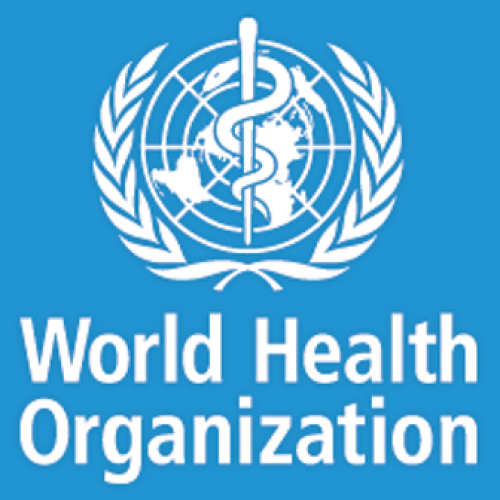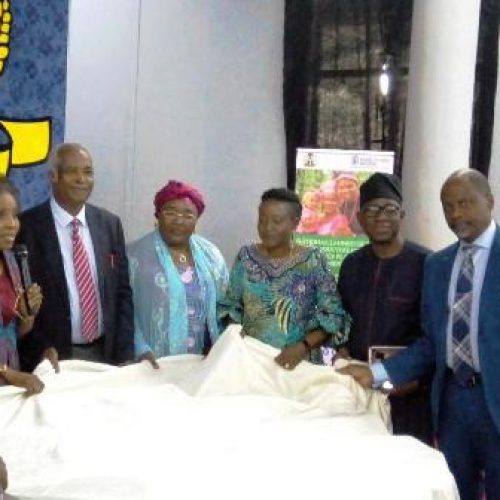AMLSN directs members to rise against meningitis, antibiotic resistance
…Says group key in local vaccines production
ABUJA – The Association of Medical Laboratory Scientists of Nigeria, AMLSN, has directed its members to increase efforts against the growing challenges posed by meningitis in the country, and ensure they offer their best to save lives being affected by the scourge.
The lab scientists are also enjoined to contribute immensely towards decreasing the spate of antibiotic resistance in the country.
President of the group, Alh Toyosi Raheem, gave the directives in Abuja at the weekend at a media briefing to commemorate this year’s World Biomedical Science Day, marked globally on April 15.
He expressed worry over the current toll taken by meningitis and said the over 500 deaths would have been averted if government had taken necessary precautionary measures to prevent the outbreaks.
Raheem informed that Medical Laboratory Science or Biomedical Science had continued to be very important in diagnosis, research, training and service delivery, and that as such, it plays great roles in responding to health emergencies among others.
He charged all state chapters of the association to commemorate the day “in the best way possible.”
He added: “It is already a known fact that Biomedical Laboratory Science Day is observed to increase the awareness of the roles that Biomedical Scientists play in healthcare. Biomedical Scientists play an important role in diagnosis, quality development and quality assurance, treatment, therefore, the purpose for which International Biomedical Laboratory Science Day is commemorated annually is to give our profession a day to promote and celebrate ourselves.”
According to him, the World Biomedical Science Day was declared by the World Congress of the International Federation of Biomedical Laboratory Scientists (IFBLS) on April 15 in Oslo, Norway in 1996.
The theme for this year World Biomedical Laboratory Science Day is “Antibiotic Resistance: Biomedical Laboratory Scientists Respond to the Global Threat.”
AMLSN explained that due to poverty, ignorance and weak regulations in various health practices, “there has been use, misuse and abuse of antibiotics in our various communities especially in Nigeria. The danger arising from this range from wastage of drugs (antibiotics), development of side effects, some of which include damage to organs and systems, development of resistance by the microorganisms, prolonged hospital visits/admissions due to treatment failures and complications, loss of avoidable man-hours or economically productive hours amongst others.
“You will agree with us that these are global threats to human health and productivity. The uncontrolled use and misuse of antibiotics in animals’ feeds and poultry has further worsened the menace of antibiotic resistance. The recent outbreak of meningitis, Ebola Viral Disease and Lassa fever calls for all hands to be on deck in appropriate and faster diagnosis and chemotherapy especially the rational use of antibiotics.
“Imagine what the outcome of a drug resistant strain in an epidemic outbreak of meningitis and other infectious diseases would be! It is better imagined than experienced. We are already battling with emerging drug resistance in HIV, TB, malaria, diarrhoea and other enteric diseases.
“As a responsible professional association, we need to decisively respond to the threats and engage the community in advocacy, proper and faster methods for detecting infectious agents and their susceptibility testing. AMLSN hereby urges all her members to see these as needed priority areas in curbing the spreading menace of antibiotic resistance. We should always remember the WHO concept of quality healthcare that places the patient at the centre of the circle with all the health professionals looking at the patient and thinking of how best to serve the patients with the best professional services possible. This should be the priority of all Medical Laboratory Scientists in Nigeria.”
Meanwhile, AMLSN has said medical laboratory scientists are both involved in disease diagnosis and bacteria vaccines production processes. It called on the Federal Government to revive the Vaccine Laboratory in Lagos State and also engage its members to help the nation produce bacteria vaccines locally. The group also said it would offer its best to help reduce the menace of antibiotic resistance in the country.
“When you look at antibiotic resistance and our own profession, we are very key because it is when somebody that is assumed or suspected to be suffering from infectious is sent to the medical laboratory, when the sample is collected, whether from whatever area that is affected and the samples are taken to the medical laboratory, these samples are analyzed, the causative organisms are isolated. Not only isolated, we determine the susceptibility pattern, these organisms that are causing these diseases, which of the antibiotics are these organisms sensitive to? And, when that is determined, and result released to the physicians, it will guide him or her in make appropriate antibiotic prescription.
“So, that is our role. The more seriousness we ascribe to this role, the less resistance to antibiotic…We have enormous roles that we have to play in antibiotic resistance. That is why the International Federation of Medical Laboratory Scientists declared from the headquarters in Canada that all medical lab scientists or bio-medical lab scientists globally should arise and begin to address this menace of threat that is ravaging us globally. We have to take this responsibility as medical lab scientists in containing this,” Raheem stated.








0 Comments
No Comments Yet!
You can be first to comment this post!